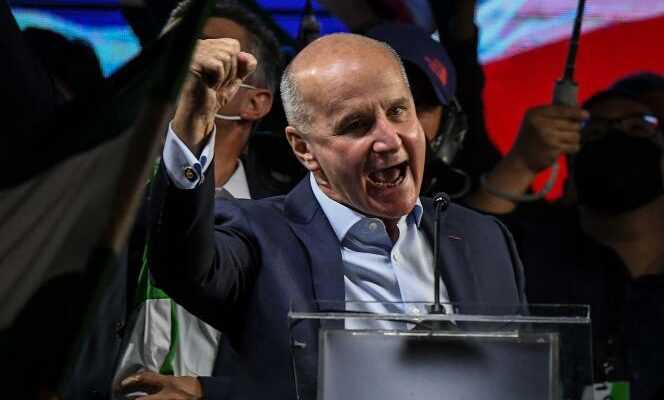Costa Rica is a centre-right country. The elections, Sunday, February 6, which saw 25 opposing parties for the presidency and the renewal of the National Assembly, confirmed this: 82% of voters chose candidates from the center or from the right, relegating the left to a sixth place, with barely 8% of the ballots – and 5 seats out of 57.
The former president of Costa Rica José Maria Figueres – in power from 1994 to 1998 – came out on top in the first round of the presidential election in this small Central American country of 5 million inhabitants, an island of stability in a region that is faced with authoritarian excesses, but confronted with a degraded economic situation.
With 27% of the vote, the candidate of the National Liberation Party (PLN) – initially a social democratic formation before reorienting towards the center right – will have to face in the second round, on April 3, the liberal economist Rodrigo Chaves. The candidate of the Democratic Social Progress Party (PSD, founded in 2018) created a surprise by winning 16% of the votes in the presidential election and 9 seats, while he was only credited with 8% in a published poll. five days before the election.
Record abstention
The Citizen Action Party (PAC) of outgoing President Carlos Alvarado was completely crushed, with 0.66% of the vote and no seats. Voters sanctioned the rise in unemployment (which was 13.7% at the end of 2021) and poverty (23%). The bitterness of Costa Ricans was especially felt in the abstention, which rose to 40%. A record.
José Maria Figueres, 67, an engineer trained at the American military academy at West Point, has a prestigious name: he is the son of José Maria “Don Pepe” Figueres Ferrer, founder of the PLN, three times president of the country, and whose the most famous legacy was the abolition of the armed forces in 1948.
Elected head of state in 1994, at the age of 39, his son “transformed an economy dependent on the monoculture of coffee and bananas into a service economy and by developing ecotourism”, notes Ronald Alfaro, from the Center for Research and Political Studies at the University of Costa Rica. If he has to his credit a profound reform of the health system, he also applied a policy of budgetary restriction, a controversial reform of pensions and was the artificer of the closure of public bodies, such as the Costa Rican Institute railways. At the end of his mandate, poverty and inflation had got the better of his popularity.
You have 48.97% of this article left to read. The following is for subscribers only.
